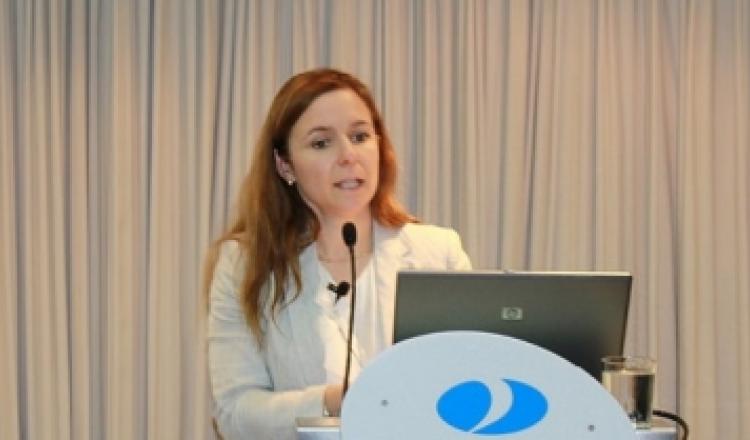“Today's economic growth needs inclusion and sustainability”
During CSR conference“Architects of a BetterWorld”, organized by Global Compact in Chile, Katia Trusich talk to the audience about the benefits of Sustainable Developmentand and the challenges Chile is facing to achieve a more integrate society. Diana Chavez, UN Regional Centre for Latin America and the Caribbean Director, commented on Global Compact Business Engagement Architecture. ComunicaRSE travelled to Chile to participe in this event.
Minister Katia Trusich said in an interview with ComunicaRSE that "if we look economy with a sustainable, social and inclusive scope we can obtain productivity impacts and motivate commitment, two keys for social development". “Today's economic growth needs inclusion and sustainability. Spaces for debate like this conference contribute with sustainability goals and Chile’s role in UN debate".
Trusich said “there’s a growing pressure from society, consumers and government to commit to social responsibility”. “It should be seen as an opportunity, as an instance for inclusion and collaborative work.”
She announced the creation of a Board for Social Responsibility in Sustainable Development to work with private sector leaders to include CSR in Chile’s economic strategies.
“Chile can and must develop policies that encourage and improve our standards of social responsibility. Achieving this goal will depend on the work of both private and public sector, Trusich said."
In the same conference, Diana Chavez, UN Regional Centre for Latin America and the Caribbean Director, an institution create to support Global Compact’s work, talk about “Business Engagement Architecture” and the new UN goals for private sector.
"Latin America is the second growing region, after Europe, that compromises with CSR and UN Sustainable Development Goals. 81% of Latin American companies surveyed by UN Regional Centre manage an exclusive sustainability budget", Chavez said.
"We are working on sustainable development pillars proposed by Global Compact. If we want to compete in global markets, we need to satisfied basic issues. Social goals are strategic but we have to deal with economic realities too", Chavez added. “Global Compact leaders considered that Chile and Argentina have great strengths to interact with their counterparts in Latin America. Both countries have a great potential to take social and economic challenges.”
Finally, Chavez maked a call to action to private sector “to take an active role in setting standards for sustainability politics”. "The support from senior management is also a key issue to achieve sustainable development. If these issues do not become 'priorities' for managers we hardly be able to reach UN goals."
Margarita Ducci, Global Compact Executive Director, said that "public-private partnership remains one of the most important issues for social development strategies tools. It is essential that spaces such as the Council of Social Responsibility are well used by stakeholders to design concrete actions".
By María Julia Arana

